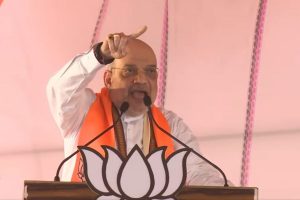The National Health Policy 2017 that aims to raise public health expenditure to 2.5 per cent of the gross domestic product, targets universal access to good quality healthcare services at affordable costs with a proposal to provide free drugs, free diagnostics and free emergency care services in all public hospitals is a welcome step, according to medical fraternity.
“With shift to wellness and prevention from sick care, and the increase in public health expenditure to 2.5% of the GDP, the National Health policy 2017 has its heart in the right place” said Dr Naresh Trehan, chairman, CII National Healthcare Council and chairman, Medanta Group. “CII welcomes the National Health Policy, it shows the commitment of the government to put health of its citizens first,” he added.
Advertisement
The Apollo Hospitals Group called it a "visionary step" towards assuring quality of life and quality of health services to every citizen. “Not only will it lead to strengthening of the primary health institutions, it will also help reduce the burden of communicable and non-communicable diseases while reducing out-of-pocket expenditure on health services," said Prathap C Reddy, founder chairman of the group.
Voluntary Health Association of India and its 4500 Member Organisations, working in health throughout the country, welcomed the move by the government for bringing the National Health Policy 2017 that seeks to reach everyone in a comprehensive integrated way to move towards wellness.
“The policy though has come after a gap of 15 years to address the current and emerging challenges necessitated by the changing socio-economic, technological and epidemiological landscape, it is extremely timely and appropriate for being patient centric and quality driven. It emphasises reorienting and strengthening public health institutions across the country, so as to provide universal access to free drugs, diagnostics and other essential healthcare, said Alok Mukhopadhyay, chairman, VHAI.
“The government, however needs to be careful in their enthusiasm to create favourable climate to engage with the private sector, so that we do not put health in the market place. Leaving health sector at the mercy of market mechanism might compromise the intrinsic values of health care,” said Mukhopadhyay.
“With a focus on preventive approach rather than on the curative one, on NCDs, the new Health Policy will be an improvement programme to reach and support citizens with chronic diseases in varied settings. Lack of prevention of chronic diseases has a particular impact on the quality of life, on escalating health care costs, and on the overall economy,” said Dr Kenneth E Thorpe, chairman, Partnership to Fight Chronic Diseases (PFCD).
“The policy’s shift from a strong bias towards curative care to preventive care to improve awareness about risk factors, screening, early diagnosis and counselling are critical to tackle a steady rise in NCDs and in bringing down the prohibitive cost of lifelong treatment,” said Aman Gupta of PFCD.
















